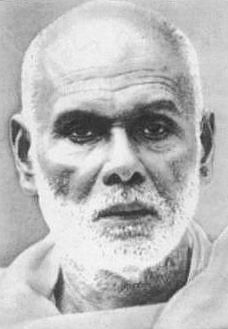This article relies largely or entirely on a single source. (August 2023) |
Brahmananda Swami Sivayogi | |
|---|---|
| Born | Karatt Govinda Menon August 26, 1852 Kollankode, Palakkad, British India |
| Died | September 10, 1929 (aged 77) |
| Other names | Alathur Sivayogi, Alathur Swami, Siddha Muni, Purusha Simham |
| Occupation(s) | Spiritual guru, social reformer |
| This article is part of a series on |
| Reformation in Kerala |
|---|
 |
| Background |
| Notable people |
|
| Others |
Karatt Govinda Menon (26 August 1852 – 10 September 1929), better known as Brahmananda Swami Sivayogi, was an Indian sanyasi from present-day Kerala who founded the Ananda Maha Sabha in 1918. He proposed Anandadarsam or Anandamadham (religion of bliss).[1]
He was titled "Brahmananda Swamikal", recognising his spiritual and literary knowledge by Ayyathan Gopalan, a social reformer and propagandist of Brahmo Samaj in Kerala and founder of Sugunavardhini movement. Mentor of Swami Sivayogi, and as an honor for writing a poem Brahmasankeerthanam (to be sung during Brahmo prayer meetings) on the request of Gopalan and all Brahmosamajists of Malabar, and also for extending his untiring services done through Brahmo Samaj. He started Sidhdhasramam in Alathur on 1891. He propounded the theory that anandam (happiness or bliss) should be the touchstone of any human activity. The movement he spearheaded played an important role in the Kerala reformation movement.
- ^ Journal of Indian history, University of Kerela Press, 2001, p. 270.